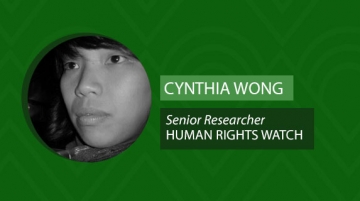
The United States has mounted a global campaign against the Chinese telecom giant Huawei, warning that the company’s equipment could be used by the Chinese government to spy on other countries. The company any accusations that its equipment is susceptible to being compromised, and to date, there is no conclusive evidence to support the American position.
Nonetheless, a handful of Western countries are taking the U.S. allegations seriously, including Australia, New Zealand and Canada, and have committed to not using any Huawei gear in their next generation mobile communications networks, known as 5G, that will allow will significantly increase internet connection speeds by as much as 100 times faster.
But U.S. calls to ban Huawei equipment are receiving a very different response in Africa where Huawei’s combination of low prices and high quality has made it a favorite on the continent. It’s not that there aren’t concerns in Africa about security and surveillance, but instead, the focus is more on closing the digital divide through expanded access to communications networks.
Security is important, but Africa is still struggling to get itself fully online. This takes lots of funding and lots of cheap, sturdy components. In Africa, the real issue is who except Chinese companies like Huawei can do this work?
– Cobus van Staden, Senior China-Africa Researcher at the South African Institute of International Affairs
Emeka Umejei, a visiting assistant professor in journalism and media studies at the American University of Nigeria in Yola, is an expert on how Chinese hardware companies like Huawei are re-shaping Africa’s internet. He joins Eric & Cobus to discuss the political calculations that African states are making in their decision to rebuff the United States and embrace Huawei.
Join the discussion. Do you think African policymakers are right to be less concerned about potential security breaches in Huawei networking equipment and that it could be used to spy for the Chinese government? Or, do you feel that whatever the issues are, ultimately, this isn’t Africa’s fight? Let us know what you think.
Show Notes:
- Power 3.0: Imitation Game: Will China’s Investment Re-Shape Africa’s Internet? by Emeka Umejei
- ChinaFile: What do the Huawei Indictments Mean for the Future of Global Tech by Cobus van Staden, Adam Segal, Samm Sacks, Elsa Kania, Elliott Zaagman and Anna Holzmann
About Emeka Umejei:

Emeka Umejei has the unique advantage of having an academic knowledge and a professional experience of Journalism. He has been a print, TV and online journalist for more than one decade. Emeka Umejei holds a master’s degree in Journalism and Media Studies from Rhodes University in Grahamstown and a PhD in Journalism and Media Studies from the University of the Witwatersrand in Johannesburg, South Africa.
Emeka Umejei has been published in international academic journals such as Africa-East-Asian Affairs, Chinese Journal of Communication and African Jouralism Studies. He is widely quoted on Chinese media in Africa and has written several opinion articles on the subject.







